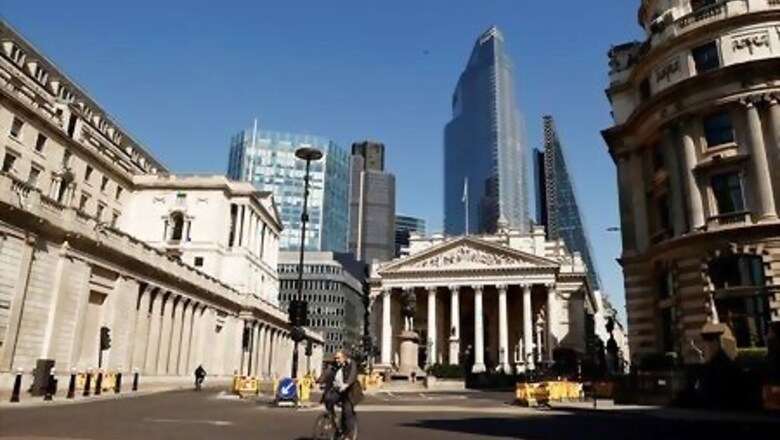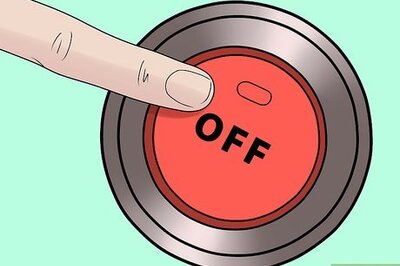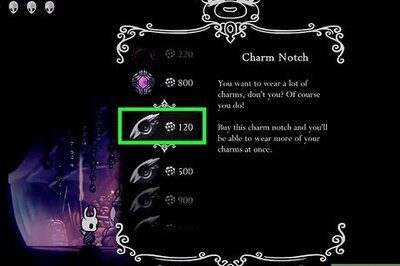
views
LONDON The Bank of England said on Thursday that Britain’s economy would probably take longer to get back to its pre-pandemic size than it previously thought, even if the scale of the hit this year might not be quite as bad.
The British central bank also warned of possible risks if it were to take interest rates below zero.
As it announced unanimous votes by its policymakers to make no changes to its key interest rate, which stands at just 0.1%, nor its huge bond-buying programme, the BoE said the economy would not recover its pre-pandemic size until the end of 2021.
In May, it had said it thought it might get back to its pre-crisis size during the second half of 2021.
However, the BoE’s protections for 2020 are less grim than in May. Unemployment is expected to peak at 7.5% at the end of this year, almost double the most recent rate but lower than the BoE’s previous estimate of just under 10%.
The overall economy now looks on course for a 9.5% drop this year. That would be the worst performance in 99 years but less severe than a 14% plunge in the BoE’s May scenario, which would have been the worst in more than three centuries.
Sterling hit its highest level against the dollar in five months and was up about 0.4% at 0720 GMT. British government bond yields also rose, as the BoE confirmed a further slowdown in the pace of bond purchases.
The BoE said GDP was set to rebound by 9% next year, weaker than the 15% surge in May’s scenario, and there were bigger risks of a slower recovery than a faster one.
The projections showed the BoE’s Monetary Policy Committee thought inflation was likely to go below zero this month before returning to around the BoE’s 2% target over the next couple of years and rising to 2.2% in 2023.
“The MPC’s forecast for CPI inflation to eventually rise above the 2% target is its way of saying that it thinks that further rate cuts or other stimulus measures likely will not be needed this year,” Samuel Tombs, an economist at Pantheon Macroeconomics. “Bold, and probably foolish.”
Governor Andrew Bailey and his fellow policymakers signalled they would not be in a rush to raise borrowing costs when inflation does rise.
“The Committee does not intend to tighten monetary policy until there is clear evidence that significant progress is being made in eliminating spare capacity and achieving the 2% inflation target sustainably,” the BoE said.
The BoE also said its review of whether to take rates into negative territory was ongoing and there were factors that could change its previous view that their floor was just above zero.
However, such a move could hurt banks’ balance sheets, it said.
“The MPC has other instruments available – for example, asset purchases and forward guidance. The MPC will continue to assess the appropriate monetary policy stance and will keep the appropriate tools for achieving its remit – including negative policy rates – under review.”
Disclaimer: This post has been auto-published from an agency feed without any modifications to the text and has not been reviewed by an editor



















Comments
0 comment